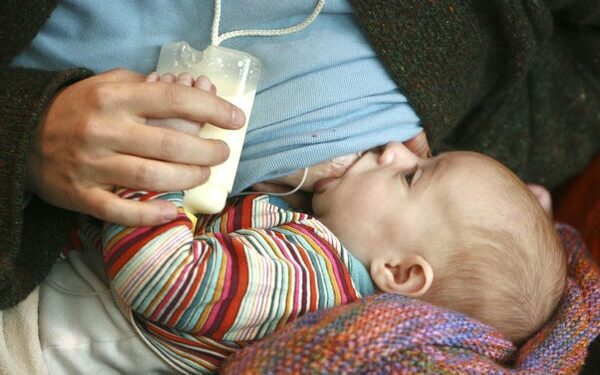Table of Contents
Human milk is secreted through your mammary glands, which are located in your breasts Lactation is hormonally driven and occurs naturally in people who are pregnant It can also be induced in those who are not pregnant Lactation will continue as long as milk is being removed from your breasts
Accordingly, Is it normal to breastfeed a 3 year old? The American Academy of Pediatrics (AAP) recommends that mothers breast-feed for the first 12 months and “thereafter for as long as mother and baby desire” The World Health Organization recommends the practice up to age 2 “or beyond”
How long can a female produce milk? The milk production can continue for up to a period of 2-3 years Breast milk, the healthiest food you can give to your baby, contains fat, which babies and even young kids need to grow and help their body absorb and process essential vitamins and minerals
Why do I still have milk in my breast after 4 years? Reasons for lactating when not recently pregnant can range from hormone imbalances to medication side effects to other health conditions The most common cause of breast milk production is an elevation of a hormone produced in the brain called prolactin Elevation of prolactin can be caused by: medications
Further, Is it normal to still have breast milk after 2 years? It’s not unusual for milky discharge to continue for up to two to three years after discontinuing breastfeeding and it typically affects both breasts
What is dry nursing?
With “dry” breastfeeding your baby does not actually drink significant amounts of milk, but he is able to smell and taste the droplets of milk that remain in your breast after pumping
What countries breastfeed the longest?
When it comes to the ideal length of time to breastfeed a baby, however, there was more variation Most mothers in Brazil, China, Germany, Hungary, Mexico, the United Kingdom, and the United States feel six to 12 months is ideal
Can breastfeeding too long cause problems?
For example, duration of breastfeeding experience has been shown to correlate negatively with parent-reported antisocial and aggressive behavior in children from 4 to 11 years of age [43] These effects on antisocial behavior appear to extend well beyond childhood into adulthood
Is breastfeeding a 3 year old normal?
Breastfeeding beyond babyhood is normal But children outgrow breastfeeding on their own, just as they outgrow other toddler behaviours This process of ‘natural weaning’ can allow a child to develop at his own pace, giving up breastfeeding according to his own timetable
Can a woman produce milk forever?
There is no maximum age, up to which a mother can produce breast milk Whenever the pregnancy happens, the lactogen process starts immediately Usually after the age of 40, there are certain hormonal changes in the body, due to which the production of the breast milk is hampered
Can I breastfeed my husband forever?
Generally speaking, breastfeeding your husband or partner is OK It’s not perverted or wrong if you want the person you are intimate with to breastfeed, or if they ask to try breastfeeding or taste your breast milk
Are breastfed babies smarter?
Babies who are breastfed for at least a year grow up to be significantly more intelligent as adults and earn more money, a new study shows Babies who are breastfed for at least a year grow up to be significantly more intelligent as adults and they earn more money, too, a new study shows
What are the negative effects of breastfeeding?
Potential Side Effects of Breastfeeding
- Painful, Cracked Nipples Nipples can get hurt in the first few days as you and your baby adjust to nursing
- Breast Engorgement
- Mastitis
- Plugged Milk Ducts
- Fungal Infections
- Pain Due to Pumping
Are breastfed babies more clingy?
Myth? Babies who have been breastfed are clingy All babies are different Some are clingy and some are not, no matter how they are fed
What is the best age to stop breastfeeding?
The World Health Organization recommends that all babies be exclusively breastfed for 6 months, then gradually introduced to appropriate foods after 6 months while continuing to breastfeed for 2 years or beyond Stopping breastfeeding is called weaning It is up to you and your baby to decide when the time is right
What race is least likely to breastfeed?
These surveillance estimates have consistently shown that non-Hispanic black (black) infants are less likely to breastfeed, compared with other racial/ethnic groups
How long can humans breastfeed?
The American Academy of Pediatrics and the World Health Organization also recommend exclusive breastfeeding for about the first 6 months, with continued breastfeeding along with introducing appropriate complementary foods for up to 2 years of age or longer






